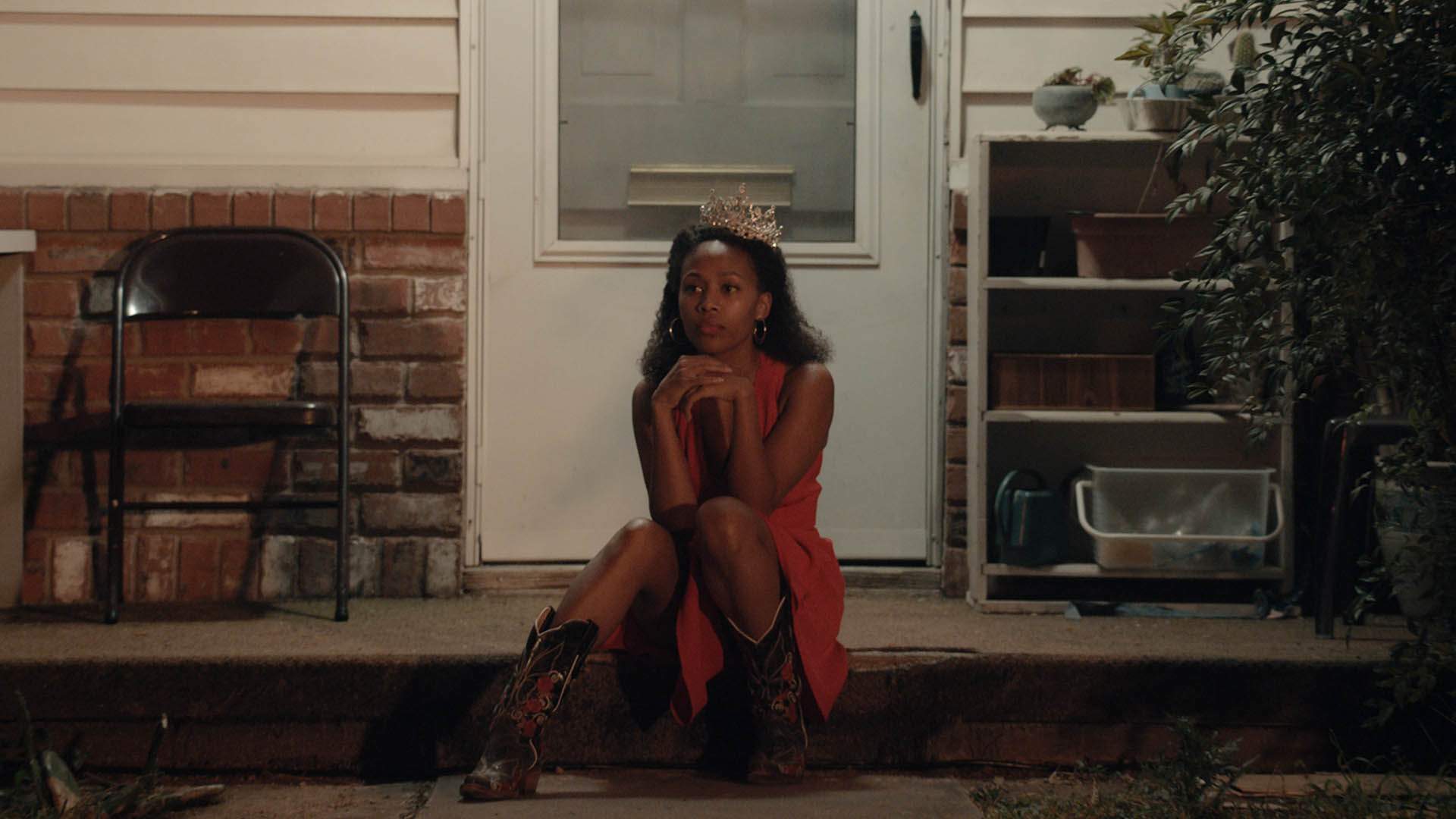Miss Juneteenth
Focusing on a mother encouraging her daughter to enter a beauty pageant for Black American teens, this keenly observed drama proves both tender and thoughtful.
Overview
"Ain't no American dream for Black folks," Turquoise Jones (Nicole Beharie) is told partway through Miss Juneteenth by her boss Wayman (Marcus M Mauldin). The latter isn't being dismissive or pessimistic, just realistic — he owns the Fort Worth bar and barbecue joint where Turquoise works, and that she's always trying to spruce up; however, he's comfortable simply holding onto the place he's fought so hard to call his own. He outlines that struggle to his super-conscientious and hard-working number-one employee, including the efforts by developers to buy him out and gentrify this corner of Texas. He explains why the comfort-food menu, the boozy regulars and the fact that his joint is a beloved neighbourhood hangout spot all means so much to him. He not only utters a powerful line, but a potent explanation of how the US operates for people of colour, who often aren't even given the luxury of dreaming big.
By this point in this observant, tender but clear-eyed film, it's already apparent that Turquoise's life hasn't turned out as she wished as a child, and that she's striving to ensure that things are better for her 15-year-old daughter Kai (Alexis Chikaeze). Also evident: that Turquoise was on a different path a decade and a half ago, after winning the local Miss Juneteenth beauty pageant and earning a scholarship to the historically Black college of her choosing. Doing the math, it's easy to work out why Turquoise's plans faltered, and why she's so determined that Kai enter the upcoming pageant, wow everyone, win and make the most of the coveted opportunity. Miss Juneteenth is a movie about choices, though — a movie about grabbing what you can when so much is snatched away or simply out of reach for unfair reasons — and it never forgets that it takes strength and courage to truly understand what the best options are.
For those wondering about the pageant's portmanteau name, and the movie's, it hails back to June 19, 1865, and the chapter of history it refers to is pivotal to the feature. More than two years earlier, slavery was outlawed in the US via President Abraham Lincoln's Emancipation Proclamation — but Black Texans weren't told until the date now celebrated as Juneteenth. Accordingly, the contest that gives the film its moniker is supposed to be a celebration, a recognition of the past, and a chance for young women to take a proud and empowered step forward. But, as Turquoise's very existence typifies even if she hasn't quite realised it yet, it also enforces a strict set of rules, standards and expectations upon Black teenage girls. It dictates who they should be rather than letting them dare to attempt to follow their own hearts, learn to be independent, shape their own identities, and accept that their own hopes and desires might differ from those imposed upon them.
The feature directorial debut of writer/director Channing Godfrey Peoples, Miss Juneteenth makes a careful and graceful effort to balance two ideas: that American society doesn't just have a problematic history with race relations, but that inequality is now engrained in everyday life; and that choosing one's own future, rather than ever simply towing a mandated line, is wholeheartedly worth fighting for even with seemingly insurmountable obstacles in the way. Turquoise describes her 2004 crown win as feeling "like I was walking into a new life", while Kai would prefer to join her school's dance team and hang out with her boyfriend (Jaime Matthis) than don formal gowns, memorise Maya Angelou poems and learn which cutlery to use when; however, they're not the only people caught in the middle of this situation. Whenever Turquoise asks her mother Charlotte (Lori Hayes) for assistance — to watch Kai while she flits between her two jobs, trying to earn enough money for pageant fees, expensive dresses and to keep the power on — she's confronted by a disapproving woman who uses religion to escape her own deep-seated woes. And while Turquoise's ex and Kai's father Ronnie (Kendrick Sampson) wants to be part of their lives permanently, his unreliable choices — also endeavouring to push him ahead in life — repeatedly spark further worries.
Little about Miss Juneteenth's message, themes or the clashing predicament the film covers is new, of course. Nor is the time spent watching, with a cynical eye, the pomp and ceremony of the eponymous pageant. And yet this affecting drama always proves keenly observed, sincerely handled and authentic. Naturalistic cinematography helps — the type that lets audiences see the grimy bathroom Turquoise has to clean at work, but also spots the vivid colours in objects around her — but the picture's naturalistic central portrayals are its biggest strength. Playing a woman who has spent her whole life thinking that success only looks one specific way, Beharie takes Turquoise on an internalised journey that makes its impact known in every gesture and gaze. It's a complex, nuanced performance, and one that demonstrates why the Shame, Black Mirror and Little Fires Everywhere actor should be a bigger presence on the big and small screens. The movie's scenes between Beharie and engaging first-timer Chikaeze are just as special, though, and give Miss Juneteenth its foundation. As a filmmaker, Peoples sees the past, present and future of her characters, and of Black Americans, in tandem — and while her feature doesn't pretend to speak to the entire Black experience, it eagerly, generously and openly endeavours to lay bare as much about its chosen slice of life as possible.





